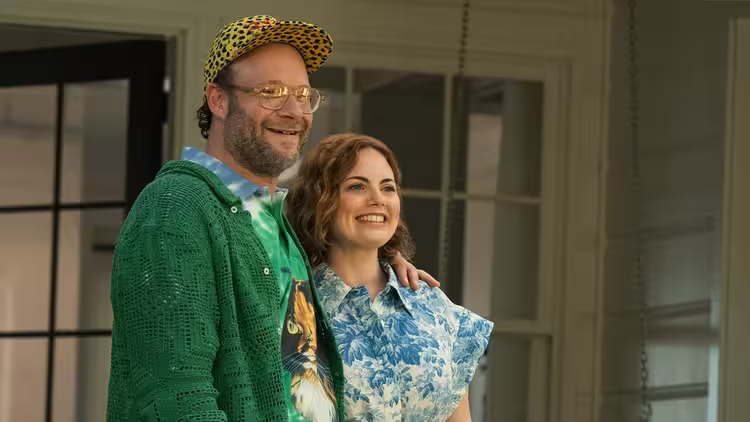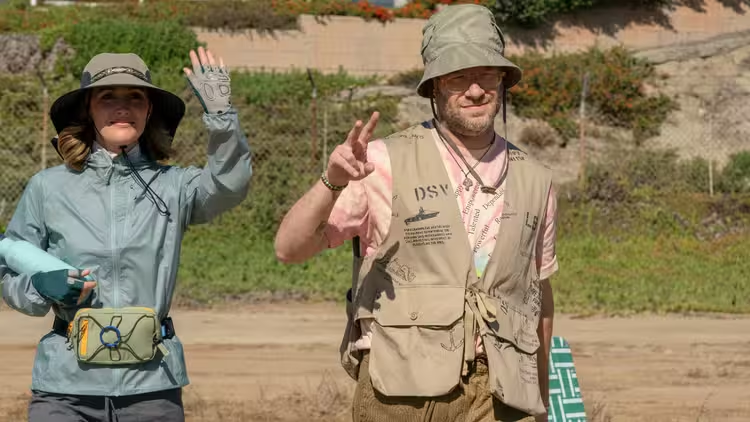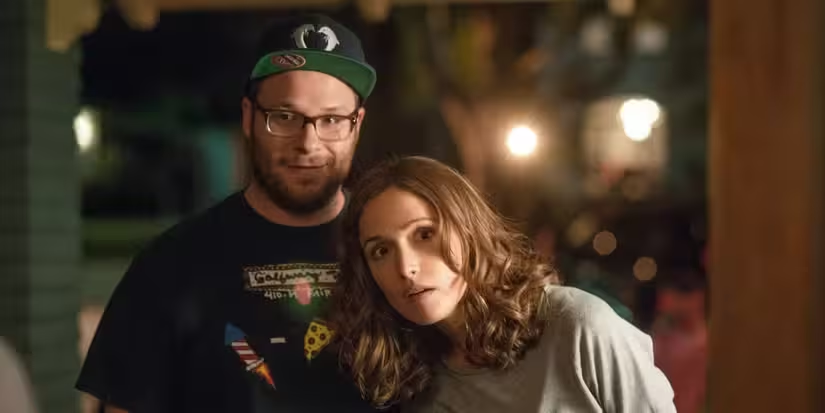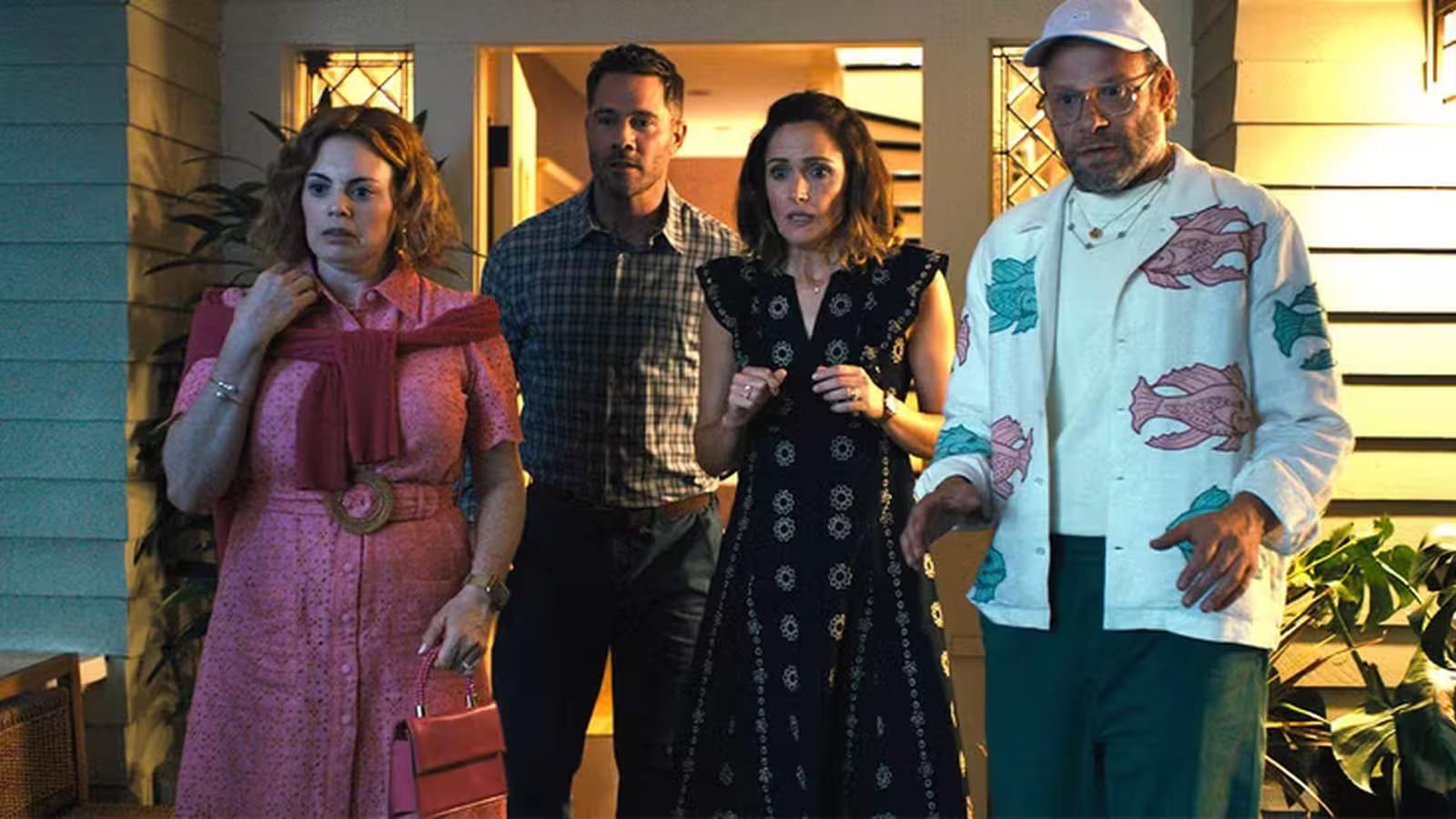10 Minutes
Why Platonic Season 2 Deserves More Attention
Platonic arrived on Apple TV+ as one of those rare series that blends sharp writing with an emotional center and a well-tuned comedic rhythm. Created by Nicholas Stoller and Francesca Delbanco, the show takes on a topic that rarely receives nuance on screen: the true-to-life platonic friendship between a straight man and woman. Season 1 quietly proved that a sitcom could be both wise and genuinely funny, and Season 2 deepens the characters, pushes tonal boundaries, and delivers moments that linger — especially a painfully awkward dinner scene that both creators and stars admit felt uncomfortably real.

From College Besties to Complicated Grown-ups
At its heart, Platonic follows Will (Seth Rogen) and Sylvia (Rose Byrne), college “ride-or-dies” who reconnect after years apart. Sylvia now inhabits a conventionally stable life: a loving husband, Charlie (Luke Macfarlane), and children. Will, meanwhile, is a laid-back brewer with romantic misfires and a distinct midlife restlessness. The premise could have easily slipped into predictable ground, yet the writing — anchored in lived-in details by Delbanco and the cinematic instincts of Stoller — makes their chemistry feel authentic. When Will and Sylvia are together, chaos and empathy swap places constantly; the show is funny because it’s tender, and tender because it’s funny.

That Dinner Scene: So Awkward It Hurts
Season 2 features a dinner sequence that quickly became a talking point among viewers. Set with Will, Sylvia, Jenna and Charlie at a table, the scene escalates from polite tension to full-throttle discomfort. Rose Byrne calls it “so awkward,” and Seth Rogen admits the sequence is reminiscent of many real-life dinners where suppressed grievances bubble to the surface. The scene works because the ensemble trusts the writing and each other: subtle gestures, pregnant pauses, and small inflections ratchet the tension until the audience squints, waiting for the emotional collision.

Why the scene lands
This isn’t broad, punchline-driven humor. It’s theatre of social collapse — a kind of observational comedy where recognition is the payoff. Fans who enjoy shows like Fleabag and Catastrophe will recognize the creative DNA: an intimate comedy that uses discomfort to reveal character. Instead of making a spectacle of the moment, Platonic lets the awkwardness speak for itself, and the result is one of Season 2’s most memorable beats.
Rose Byrne: A Physical Comedian You Didn’t Know You Needed
Rose Byrne’s Sylvia is high-energy, frantic, and frequently in physical overdrive. Byrne, who earned acclaim for dramatic roles in shows like Damages, shows an impressive comedic range here. She handles pratfalls of timing, facial micro-expressions, and fast-talking evasions with the precision of an experienced comedian. Byrne has said she’s less high-energy in real life than Sylvia, which makes her on-screen elasticity even more compelling. The show writes to those strengths, giving her situations that demand nimble physical comedy: desperate half-answers, evasive body language, and carefully calibrated panic.

Performance highlight
Whether it’s an awkward excuse or a flailing attempt to cover a lie, Byrne’s physicality transforms ordinary lines into memorable comedy beats. For viewers tracking the evolution of screen comedy, her work here is a potent reminder that great comedic acting often blends immaculate timing with physical risk-taking.
Seth Rogen’s Fashion Gamble: Why Will Dresses Like That
One delightful — and surprisingly story-driven — element of Season 2 is Will’s wardrobe. Thanks to costume designer Kameron Lennox and an insistence from Rogen himself, Will trades the sitcom brewer’s default of corduroys and sweatshirts for a string of bold, fashion-forward looks. Rogen explained his vision: Will is trying to inhabit the style of someone in their twenties, an attempt to feel younger and more desirable in the throes of a midlife shuffle.
The inspiration reportedly included pop-culture figures known for eclectic taste — Seth mentioned having a friend like music producer Benny Blanco on his mood board — and the costumes shift subtly across episodes, sometimes skirting Japanese-inspired silhouettes or kimono-like layering. Fans and critics alike have noticed the wardrobe as an unspoken character trait: clothing that says more about Will’s aspirations than his dialogue ever could.
Comparisons and Context: Where Platonic Fits in Today's TV Comedy
Platonic sits alongside a modern wave of adult-oriented comedies that prioritize character detail and emotional stakes: think Fleabag’s intimacy, Ted Lasso’s emotional sincerity, or Couples-oriented adult comedies like Catastrophe. But Platonic is less about romantic escalation and more about friendship as a durable, messy form of love. In that sense, it distinguishes itself from romantic comedies and sitcoms that treat male-female friendship as a long-gestating will-they-won’t-they.
Nicholas Stoller’s previous work — films like Neighbors and Forgetting Sarah Marshall — demonstrate a knack for balancing raunch with heart, and Platonic translates that sensibility into a serialized format. Francesca Delbanco’s writing brings lived-in parenting and return-to-work anxieties to the fore, giving the series a particular adult texture that resonates with today’s streaming audiences.
Behind the Scenes: Trivia and Fan Reception
- Kameron Lennox, whose résumé includes period detail and bold contemporary decisions, leaned into the idea that wardrobe can be comedic shorthand. Her choices for Will have been a fan-favorite discussion point on social media.
- Rose Byrne’s own TV history — her early dramatic work in Damages — informs how she toggles between restraint and release; Platonic lets that skill set bloom in a different register.
- The dinner scene was staged to escalate gradually; cast and director reportedly spent extra rehearsal time to nail the microbeats that make the awkwardness sting instead of feeling contrived. Fans praised Season 2 for maintaining the warmth that made the first season a sleeper hit while leaning into sharper, riskier comedic moments.
Industry Insight: Why Producers Are Investing in Nuanced Comedy
Streaming platforms are hungry for content that can create loyal audiences across seasons, and character-driven comedies deliver reliable engagement. Shows like Platonic are cost-effective compared to action-heavy series and can generate conversation, meme-friendly scenes, and critical buzz. Apple TV+ has been building a reputation for thoughtful, auteur-driven television, and Platonic fits that strategy: distinct creative voices, strong leads, and a show that can be marketed to both comedy lovers and viewers craving emotional resonance.
"Platonic’s success shows how audiences are hungry for intelligent portrayals of adult relationships that aren’t simply romanticized," says film critic Anna Kovacs. "The show's balance of cringe and care is a smart reflection of current TV comedy trends, where vulnerability is as important as punchlines."
Critiques and What Could Be Sharpened
No show is without its critiques. Some viewers may find certain comedic beats uneven — the difference between a deliberate awkward pause and a scene that simply stalls is thin. Others might argue the series occasionally leans too heavily on the ‘will-they-won’t-they’ buzz around platonic intimacy, risking misinterpretation of the show’s messaging. Yet these small issues sit within an otherwise confident second season that mostly tightens what worked in the first.
Final Thoughts: What Season 2 Achieves
Platonic Season 2 expands the world of Will and Sylvia with sharper edges and more daring comedic gambits. It’s a study of adult friendship, midlife reinvention, and the messy etiquette of family and social rituals. The standout scenes — from wardrobe reveals to that unforgettable dinner — are signs of a show increasingly comfortable in its voice.
"As a cinema historian, I find Platonic interesting because it reclaims the comedic possibilities of friendship for adults rather than focusing on romance," says cinema historian Marko Jensen. "It treats platonic love as a dramatic engine, and that’s a welcome turn in contemporary TV storytelling."
Where to Watch and What to Expect Next
Platonic Season 2 airs on Apple TV+ and continues to release episodes weekly. Expect more tonal range, wardrobe-driven character moments, and the same tight ensemble work. If you're a fan of character-led comedies that mix cringe with genuine warmth, Platonic is essential viewing this season.
Conclusion: A Fresh Take on Friendship and Comedy
Platonic Season 2 is more than just its headlines — the Benny Blanco-inspired outfits, the cringe dinner, or the cast’s chemistry. It’s an affirmed example of how modern TV comedy can be both daring and humane. Between Byrne’s physical bravado, Rogen’s surprising fashion choices, and Stoller and Delbanco’s pointed writing, the show stakes a claim for friendships as narratives worth exploring in their own right. For viewers craving smart, adult-oriented comedy with heart, Platonic offers laughter that lands because it’s rooted in truth.
Whether you come for the jokes, the wardrobe, or the awkward human truths, Platonic continues to prove that honoring platonic relationships on screen is not only possible — it can be revelatory. Season 2 raises the bar, and it will be exciting to see how the series evolves from here.
Source: collider


Leave a Comment